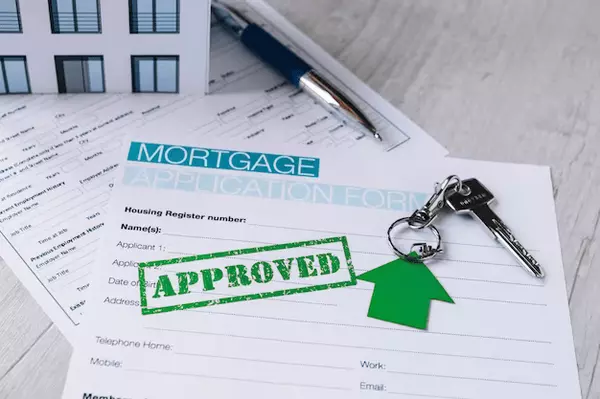
Things to Consider When Selling
Selling a property can be both an exciting but challenging experience. Ensuring a smooth process requires careful planning and consideration of various factors. Here are crucial things to consider when selling your home: **1. Understand the Market:** The real estate market can significantly impact your selling strategy. Research local market trends to determine if it's a buyer's or seller's market. This will influence how you price your home and how quickly it could potentially sell. **2. Set the Right Price:** Pricing your home correctly is essential. An overpriced home can sit on the market for too long, while an underpriced one might mean missed financial opportunities. Consult with a real estate agent for a comparative market analysis to set a competitive price. **3. Home Staging:** First impressions matter. Staging your home to make it more appealing can attract potential buyers. Simple actions like decluttering, depersonalizing, and adding fresh paint can make a world of difference. Professional home staging services are also an option if your budget allows. **4. Repairs and Upgrades:** Undertaking necessary repairs before listing your home can prevent potential deal-breakers. Consider manageable upgrades that could add value, such as modernizing fixtures or updating kitchen appliances, but avoid over-investing in costly renovations. **5. Marketing Strategy:** A well-thought-out marketing plan will give your property the attention it deserves. Professional photographs, virtual tours, and strategic online listings can maximize exposure. Social media platforms and real estate websites are powerful tools for reaching potential buyers. **6. Choose the Right Agent:** The right real estate agent can make a significant difference. Look for someone with local market knowledge, excellent reviews, and a solid track record. Their expertise can guide you through the entire process, from listing to closing. **7. Flexibility and Negotiation:** Be prepared for negotiations. Flexibility with terms like closing dates or minor repairs can make your deal more attractive to buyers. Understand that negotiation is a part of the process and aim for a win-win situation. **8. Legal Considerations:** Ensure all legal aspects are in order, including property disclosures and any necessary inspections. Having a real estate attorney review documents can provide peace of mind and safeguard against potential pitfalls. In conclusion, selling a home involves multiple considerations that require careful attention. By understanding the market, setting the right price, staging your home, making necessary repairs, employing effective marketing, choosing the right agent, remaining flexible, and covering all legal bases, you can streamline the process and achieve a successful sale.

Tips to save for a down payment
Saving for a down payment is often one of the most challenging aspects of buying a home, particularly for first-time buyers. However, with a strategic approach and disciplined habits, you can accumulate the funds you need faster than you might think. Here are some actionable tips to help you save efficiently for your dream home. **Create a Dedicated Savings Plan** Begin by setting a clear goal for your down payment. Depending on the price range of the homes you're considering, your target could vary significantly. Once you have a figure in mind, break it down into monthly savings goals. Having a dedicated savings account specifically for your down payment can help keep your funds separate and reduce the temptation to spend them. **Cut Unnecessary Expenses** Review your monthly expenses and identify areas where you can cut back. This might include dining out less often, canceling unused subscriptions, or opting for a more budget-friendly cell phone plan. These small sacrifices can add up over time and bring you closer to your down payment goal. **Automate Your Savings** One effective way to ensure you're consistently saving is by automating the process. Set up an automatic transfer from your checking account to your down payment savings account each month. This way, you remove the temptation to spend the money elsewhere and make saving a hassle-free part of your financial routine. **Consider Additional Income Streams** Increasing your income is another powerful strategy to boost your down payment savings. This might mean picking up a part-time job, freelancing, or even selling items you no longer need. Allocate the extra earnings directly into your down payment fund to accelerate your savings. **Take Advantage of Homebuyer Programs** Research first-time homebuyer grants and programs offered by local governments and financial institutions. Some of these programs provide matching funds or lower interest rates, which can significantly lighten the financial burden of a down payment. **Stay Focused and Patient** Finally, it's important to stay focused and patient throughout the process. Saving for a down payment is a marathon, not a sprint. Celebrate your milestones along the way and keep your long-term goal in sight. Consistent effort and disciplined saving will eventually lead you to your dream home.

Selecting a Lender That Is Right for You
Caption Are you planning to buy a new home? One of the most crucial decisions you will have to make during this process is selecting a lender that is right for you. The lender you choose will play a significant role in determining the success of your home purchase, so it is important to consider a few key factors before making a decision. First and foremost, it is essential to understand the different types of lenders available. There are various options such as banks, credit unions, mortgage brokers, and online lenders. Each of these lenders comes with its own set of advantages and disadvantages. It is important to research and compare the options to find the one that suits your needs the best. When selecting a lender, it is vital to consider your financial situation and credit history. Different lenders have different criteria for approving mortgage applications, so it is crucial to determine if you meet their requirements. Consider your credit score, income, and any outstanding debts you may have. This will help you determine which lenders are likely to offer you favorable terms. Another factor to consider is the type of mortgage you want. Different lenders offer different types of mortgages, such as fixed-rate mortgages, adjustable-rate mortgages, or government-backed loans. It is essential to understand the pros and cons of each type of mortgage and select a lender that offers the one that aligns with your financial goals and preferences. Additionally, it is important to consider the reputation and customer service of the lender. Look for reviews and testimonials from other homebuyers who have worked with the lender you are considering. A lender with a good reputation and positive customer feedback is more likely to provide you with a smooth and hassle-free experience. Furthermore, it is advisable to obtain quotes and compare the interest rates and fees offered by different lenders. The interest rate and fees can significantly impact the total cost of your mortgage, so it is important to find a lender that offers competitive rates and reasonable fees. In conclusion, selecting a lender that is right for you is a critical step in the homebuying process. Consider factors such as the type of lender, your financial situation, the type of mortgage you want, reputation, and interest rates and fees. Taking the time to research and compare options will help ensure that you find a lender that meets your needs and helps you achieve your homeownership goals.
Categories
Recent Posts









